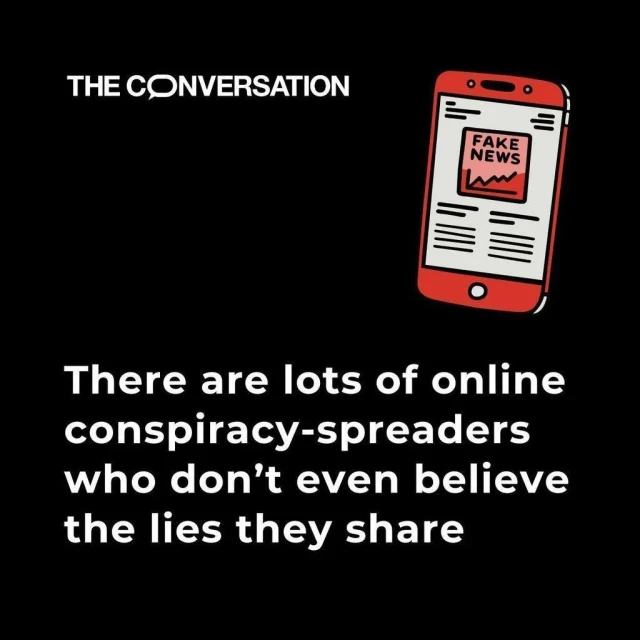Here's a secret: People who spew online lies may not actually believe they're true. You could even call it a conspiracy among conspiracy theorists.
Social psychologist H. Colleen Sinclair and her colleagues highlight a few subgroups of these people. They include straight-up #trolls just trying to promote conflict and harass others, along with people who are making money from the lies they tell and extremists fishing for new recruits.
https://theconversation.com/some-online-conspiracy-spreaders-dont-even-believe-the-lies-theyre-spewing-237730
#socialmedia #misinformation
Some online conspiracy-spreaders don’t even believe the lies they’re spewing
These people share conspiracy theories to promote conflict, cause chaos, recruit and radicalize potential followers, make money, harass, or even just to get attention.The Conversation
reshared this


Ulrich_the_Elder, 🇨🇦,🇺🇦
in reply to The Conversation U.S. • • •Regezi
in reply to The Conversation U.S. • • •* this may reinforce one's own feeling of being at home in the "right" worldview (through corresponding DruKos), but fails to recognize that it is of little help to present the abstruse side as idiotic and to fight a further slide into conspiracy theories (ridiculed, labeled individuals do not become more accessible as a result - in my opinion, amusement also seems to be a vehicle for self-assurance)
Patty Kimura for Harris2024
in reply to The Conversation U.S. • • •People are emotionally immature, and sometimes cruelly so. And I am a notorious adult buzz-kill. Grow up, people.
A.Stringer
in reply to The Conversation U.S. • • •https://www.theguardian.com/media/mind-your-language/2012/apr/19/trolls-where-come-from#:~:text=It%20seems%20to%20be%20widely,dungeons)%20or%20Usenet%20discussion%20groups.
Trolls: where do they come from?
Andy Bodle (The Guardian)